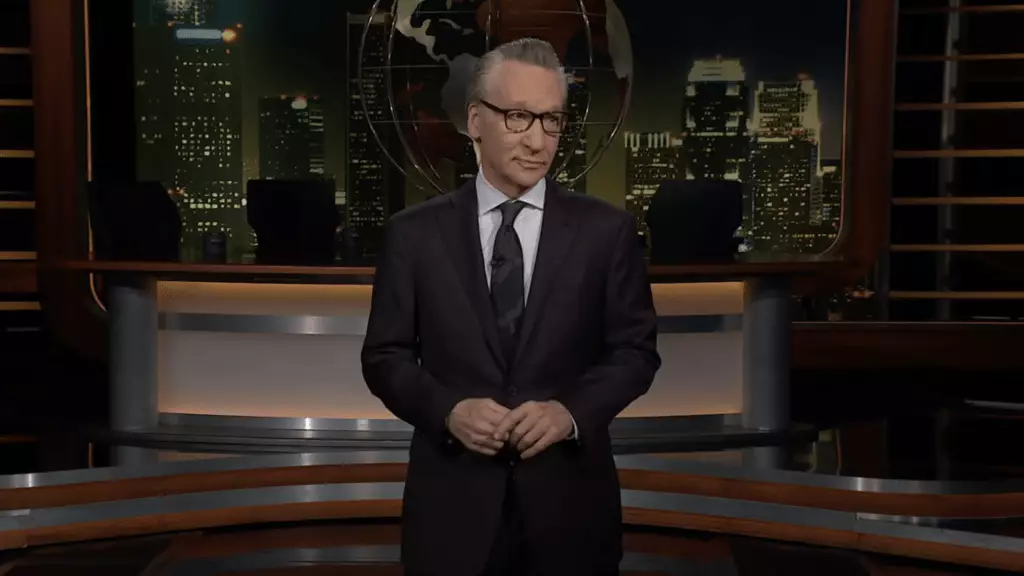In the realm of American politics, the intersection between humor and political discourse often yields complex, if not contentious, results. Recently, this was epitomized during Donald Trump’s campaign rally at Madison Square Garden, where the entertainment choice raised eyebrows and sparked significant conversation. Bill Maher, the outspoken host of “Real Time,” stepped into the arena post-rally, critiquing both the comedian hired for the event and the broader implications of such choices in today’s political climate.
At the heart of the matter is the role humor plays in political rallies. Maher’s observations centered around Tony Hinchcliffe, an insult comic who was featured at the event. In his routine, Hinchcliffe took jabs at Puerto Rico, generating what some may argue is a typical comedic response aligned with Trump’s aggressive narrative. Maher commented that hiring an insult comic for a political rally demonstrates a disconnection from the sentiments of a broader audience. Politics has historically entwined with humor to stimulate critical thought or encourage engagement; however, choosing an insult comic in such a charged atmosphere may detract more than it contributes.
Maher noted that despite Hinchcliffe’s set being intended for comedic effect, it ultimately misfired even among Trump supporters. “They came to hear it from the candidate,” Maher stated, highlighting that audiences often desire sincerity and connection over derision. This moment reflects a severe miscalculation regarding the atmosphere at political events. Instead of laughter, the crowd seemingly called for an earnest connection to the issues impacting them. This choice not only diluted the desired entertainment but also detracted from the potential for productive discourse.
When delving into Maher’s reflections on the backlash surrounding Hinchcliffe’s comments and President Biden’s earlier remarks, it becomes clear that the art of political humor can easily tip into controversy. Maher articulated concerns that Democrats appear fragile when they can’t weather an insult. This assertion raises the important question of how political figures evaluate humor and its consequences. While jokes can serve to alleviate tensions and provide insight, when humor strays into offensive territory, it can lead to profound backlash.
The reactions from both Biden’s camp and Trump’s followers illustrate a pivotal point: individuals are sensitive to ridicule when it touches upon cultural or societal identities. Maher’s observation of the double standard in comedic backlash underscores the trend seen across party lines. If the joke had been reversed, targeting a community within Republican areas, the response would likely have been fierce. This hints at a broader cultural dilemma where partisan perspectives can amplify offense, highlighting the fragility of humor within political frameworks.
As Maher navigated through the heap of political humor and insult, the tension between maintaining humor and fostering unity became pronounced. Vice President Kamala Harris’s subsequent remarks in a speech aimed at rallying Democrats back to their foundational mission showcased a yearning for genuine dialogue amidst divisive politics. Harris took a stand against the notion of viewing dissenting opinions as hostile, illustrating that a way forward lies in collaboration rather than confrontation.
Harris has called for inclusivity, urging a common ground in discussions—a concept that stands in stark contrast to the vitriolic exchange of insults. Her approach accentuates a deep-rooted issue in American politics: the urgent need to progress through conversation instead of division. Addressing political unease with sincerity could serve as a remedy against the hollowing effects of mockery and ridicule, allowing for a political climate that thrives not on divisiveness but on understanding.
In examining the interplay between humor, political identity, and societal discourse, the events at the Madison Square Garden rally emerge as a crucial point of reflection. It serves as a reminder that humor, while necessary for engagement, must be employed with care—balancing potential offensive remarks against the overarching aim of unifying a fractured populace. As America stands on this precipice, it becomes essential to consider the implications of entertainment within political realms and the potential it holds for either harm or healing.

